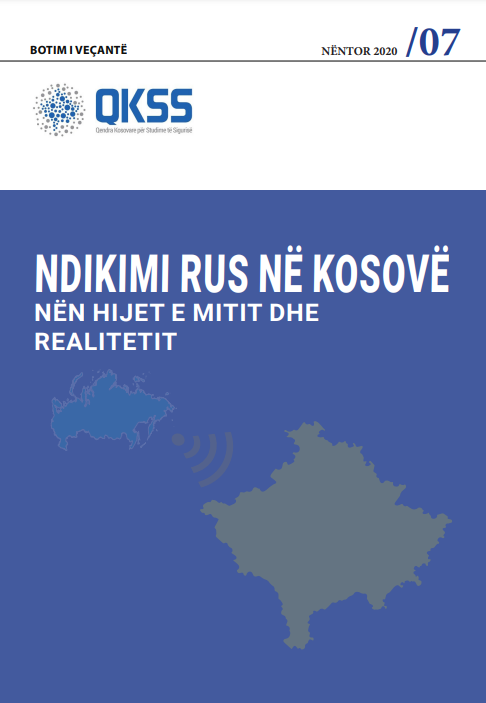12/11/2020

Kosovar Centre for Security Studies
Fulbright Fellowship, U.S. Department of State
Elis Vllasi
The aftermath of the 2016 United Kingdom (UK) referendum on European Union membership (Brexit) and the 2016 presidential election in the United States (US) have brought the issue of Russian influence operations to the center stage of international politics. The biggest surprise is not that Russia was involved, but how ill-prepared the US and UK were in countering these challenges. In the US, key Republican lawmakers did not want anything to do with the bipartisan condemnation of Russian meddling, the Obama administration was worried that a strong response will be seen as aiding Hillary Clinton’s presidential campaign, and Donald Trump would assert that the findings by 17 US intelligence agencies showing Russian interference are incorrect.1 The public too showed itself to be very gullible to Russian manipulation, with 47% of Republicans believing that Russia was not behind the election interference. 2 In the case of the UK and Brexit, a 2020 report by the Intelligence and Security Committee of the Parliament shows that the UK government “badly underestimated” the Russian threat and refused to investigate Russian interference. These two cases of Russian influence raise an important question: if the world’s most advanced countries do not fully understand the objectives, the actors, and the pathways of Russian influence and are unable to effectively guard against it, what hope is there for smaller countries such as Kosovo to deconstruct Russian influence in the country?
Disclaimer: This research was sponsored through a Fulbright Fellowship, U.S. Department of State, and the assistance of Kosovar Center for Security Studies (as host institution). The findings, views and opinions presented in this report are solely those of the author and in no way do they represent the opinions, views, or policy positions of the US Department of State – The Fulbright Program, Kosovar Center for Security Studies, Purdue Policy Research Institute, or Purdue University.